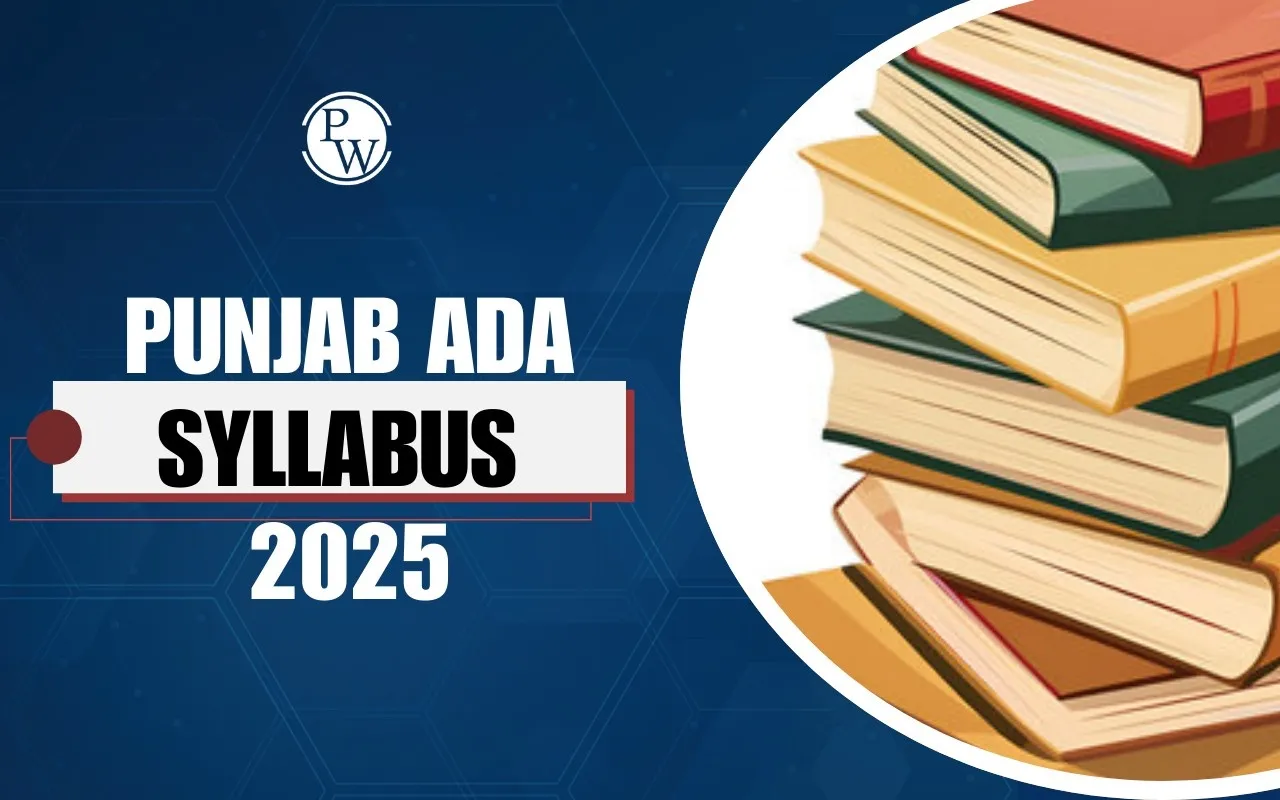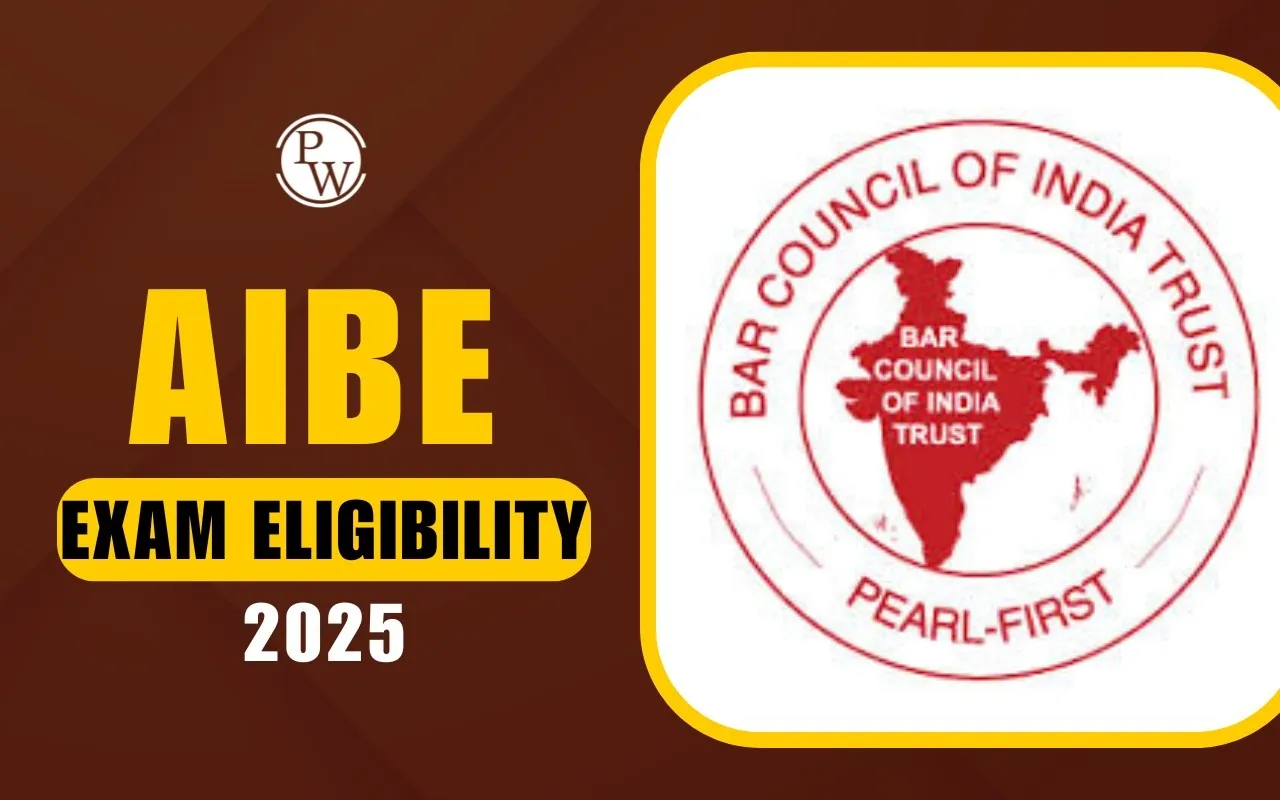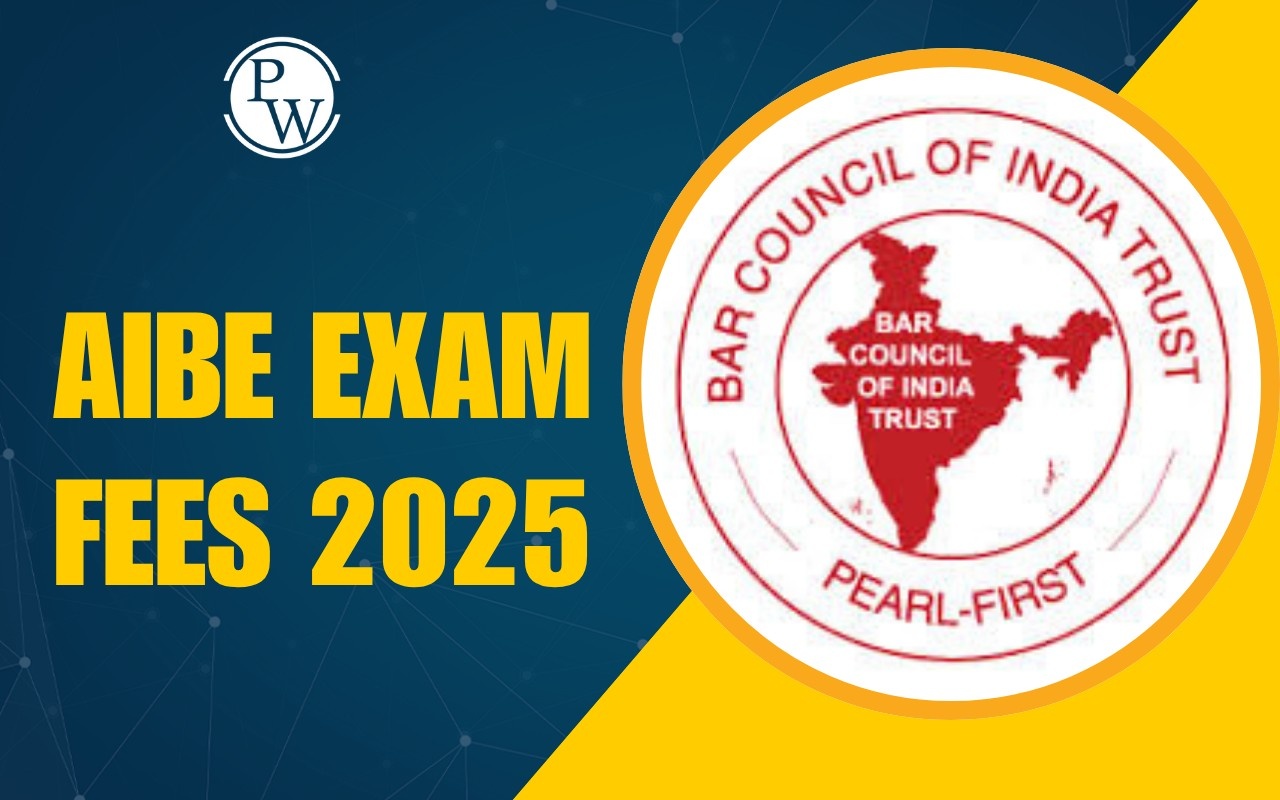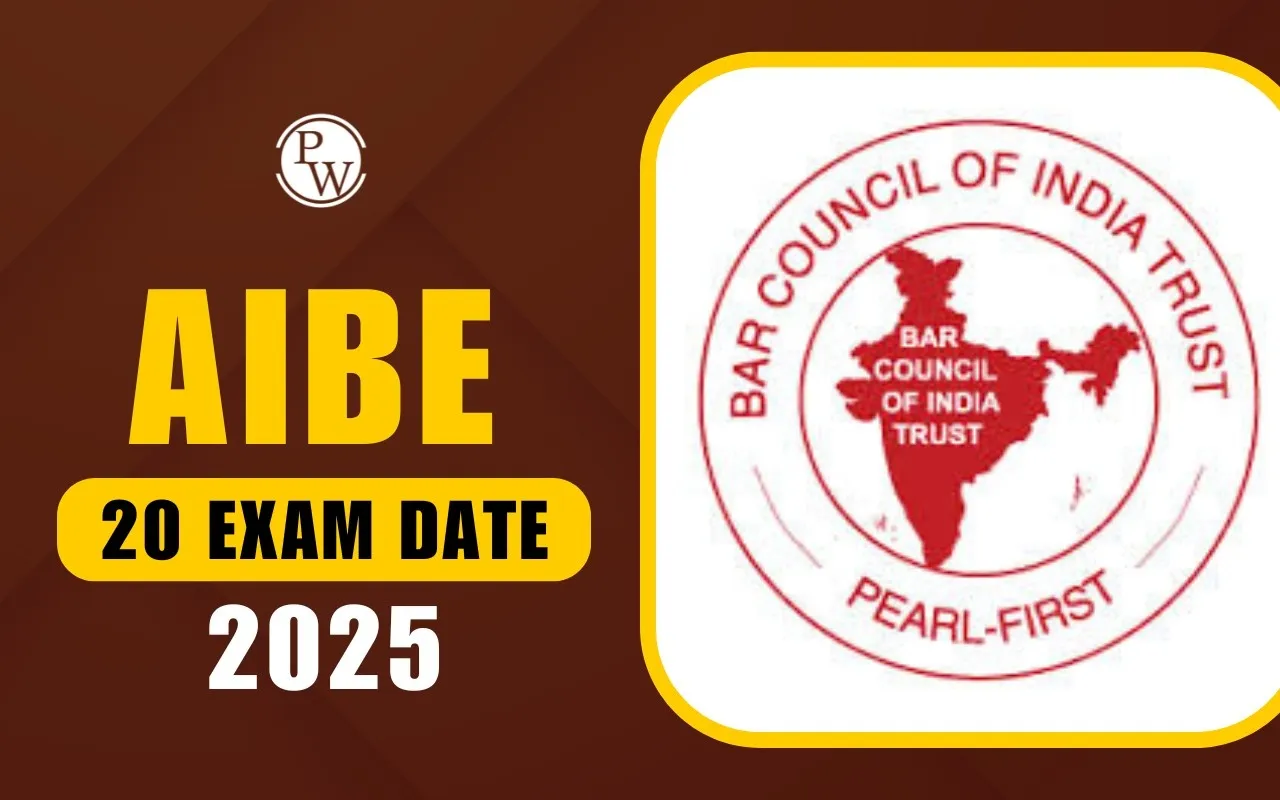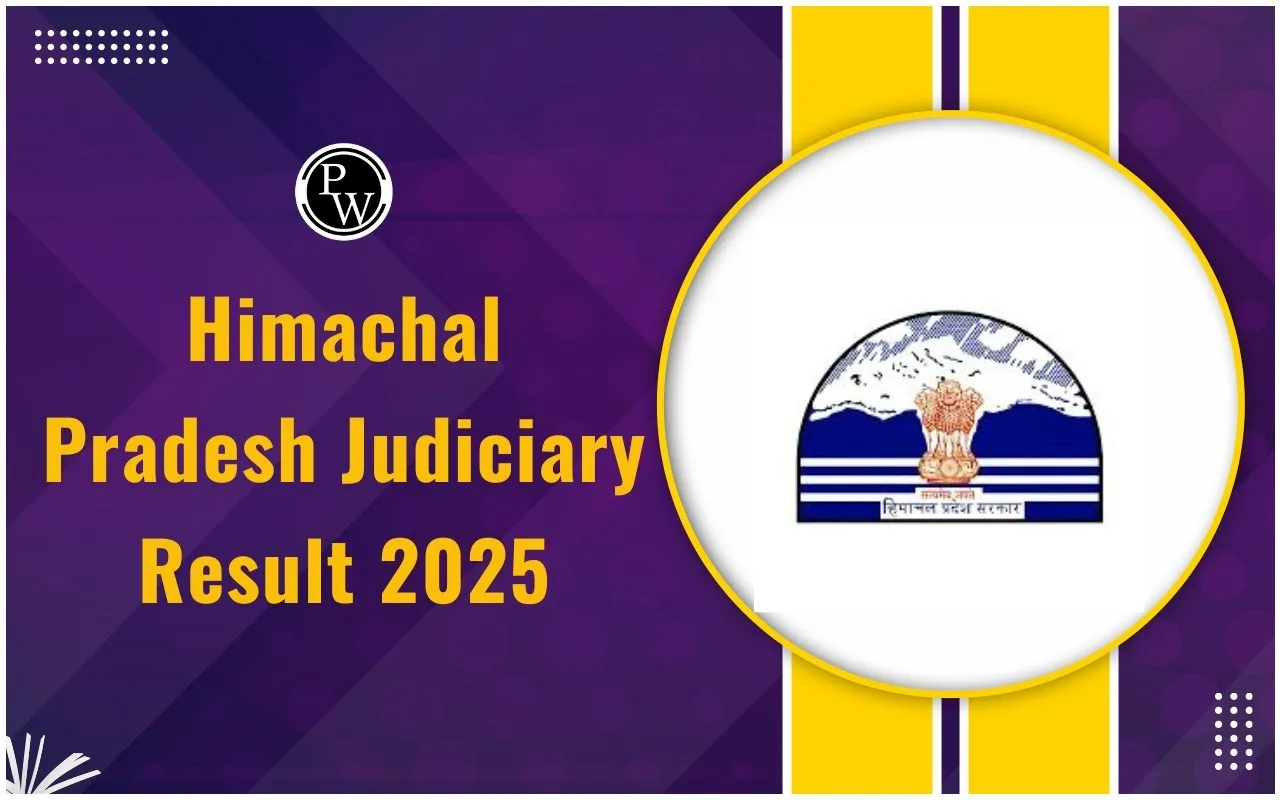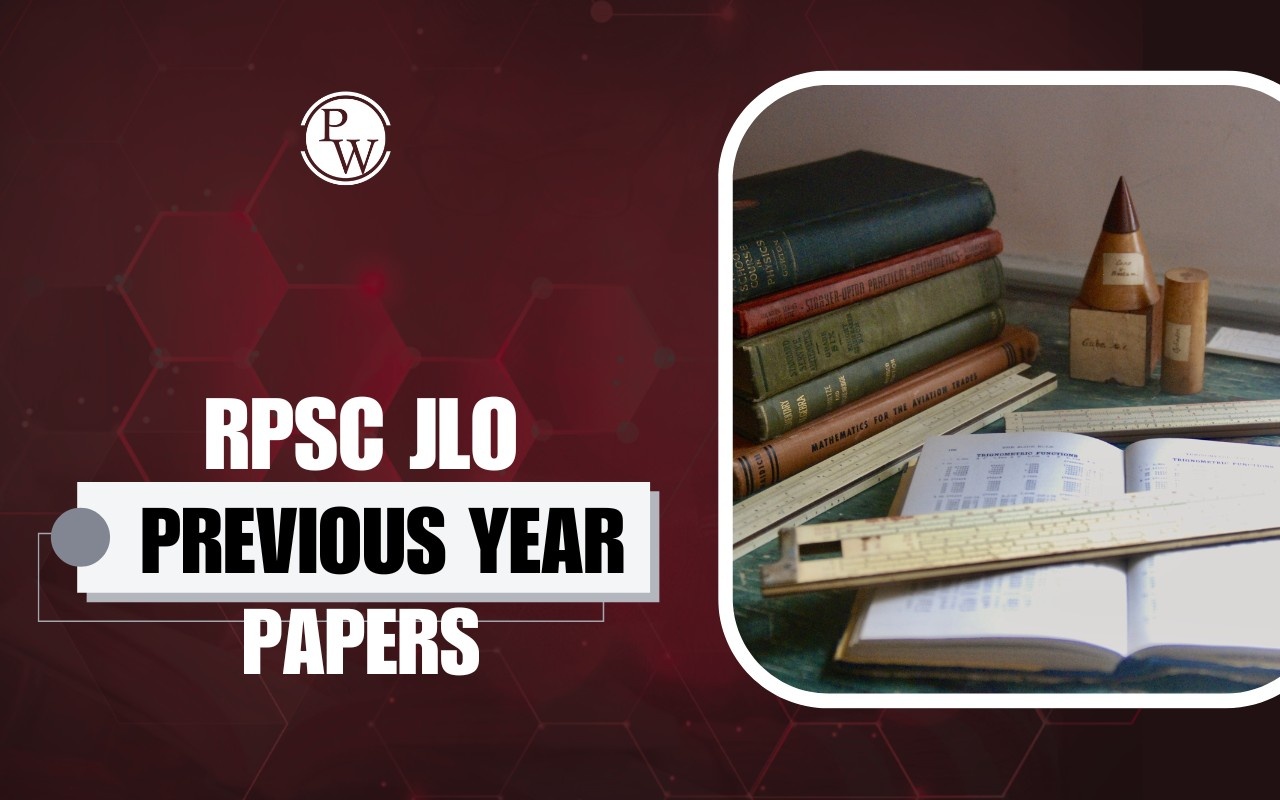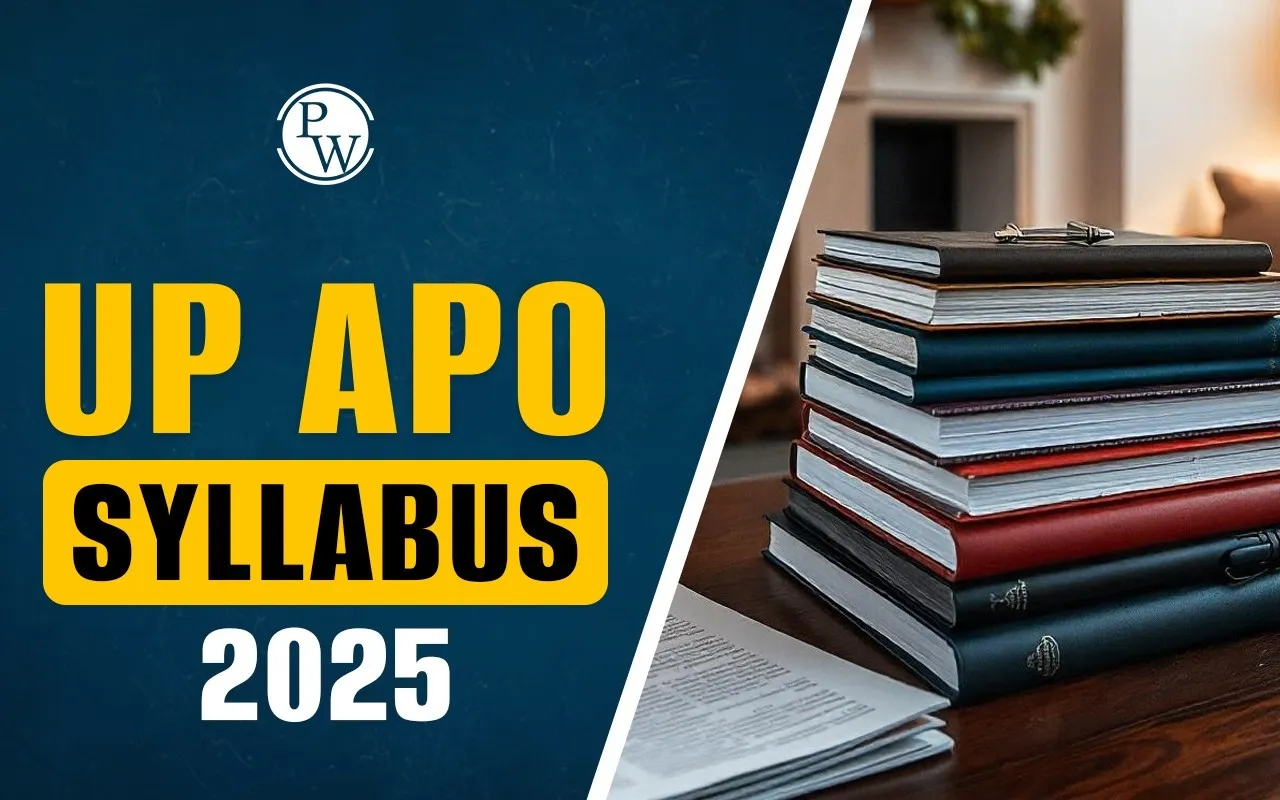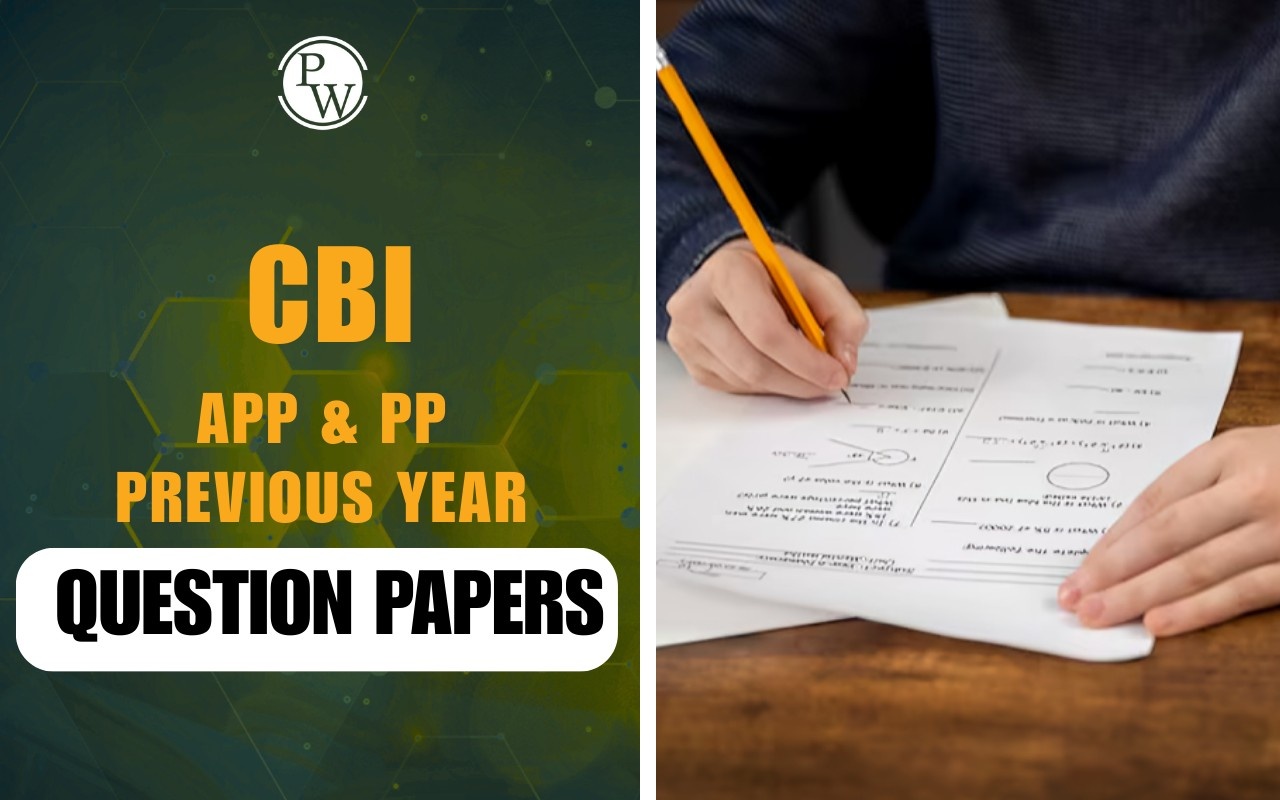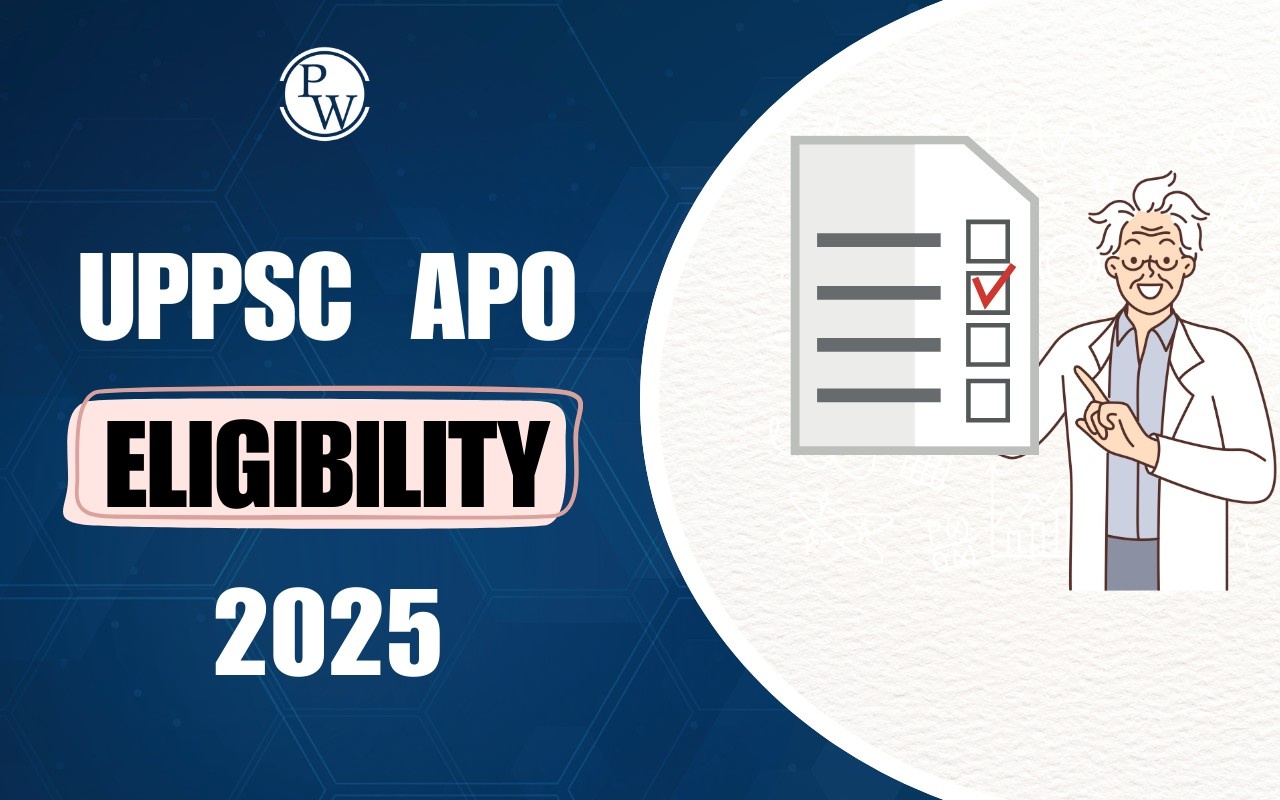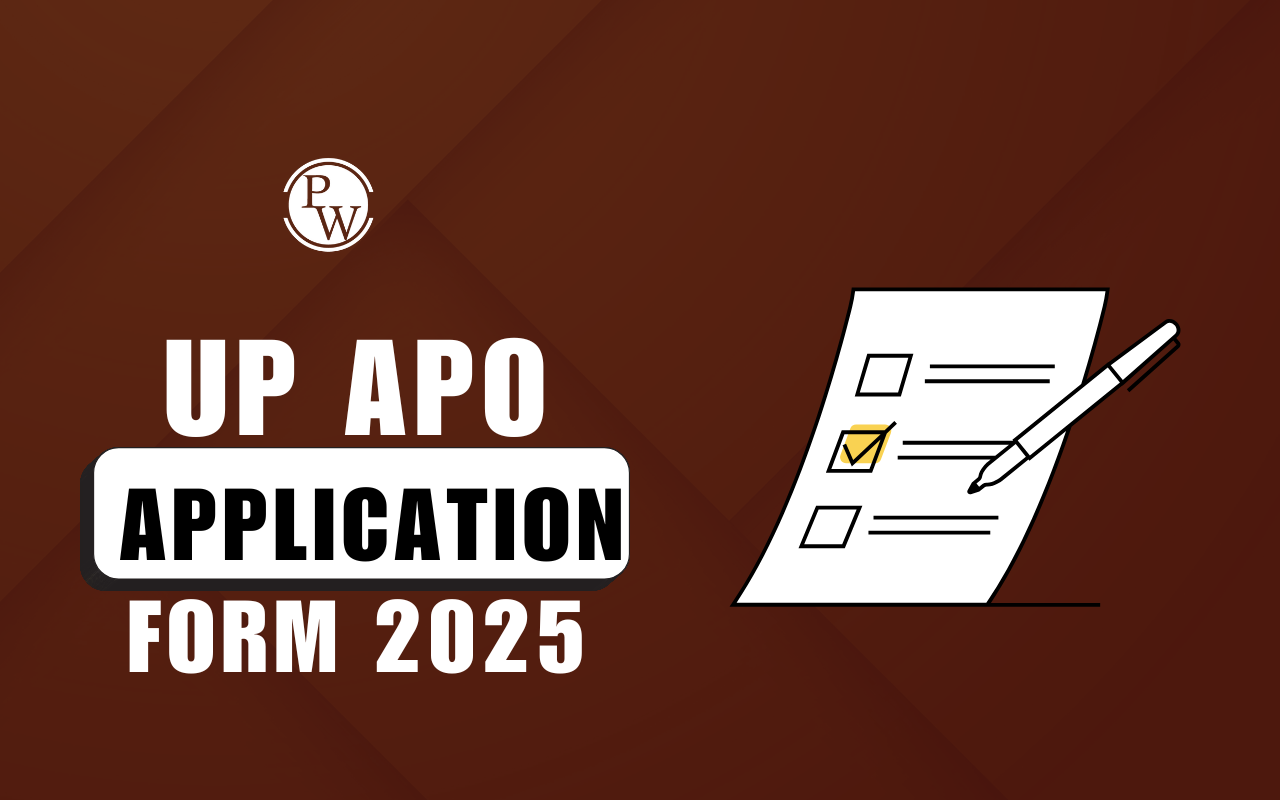
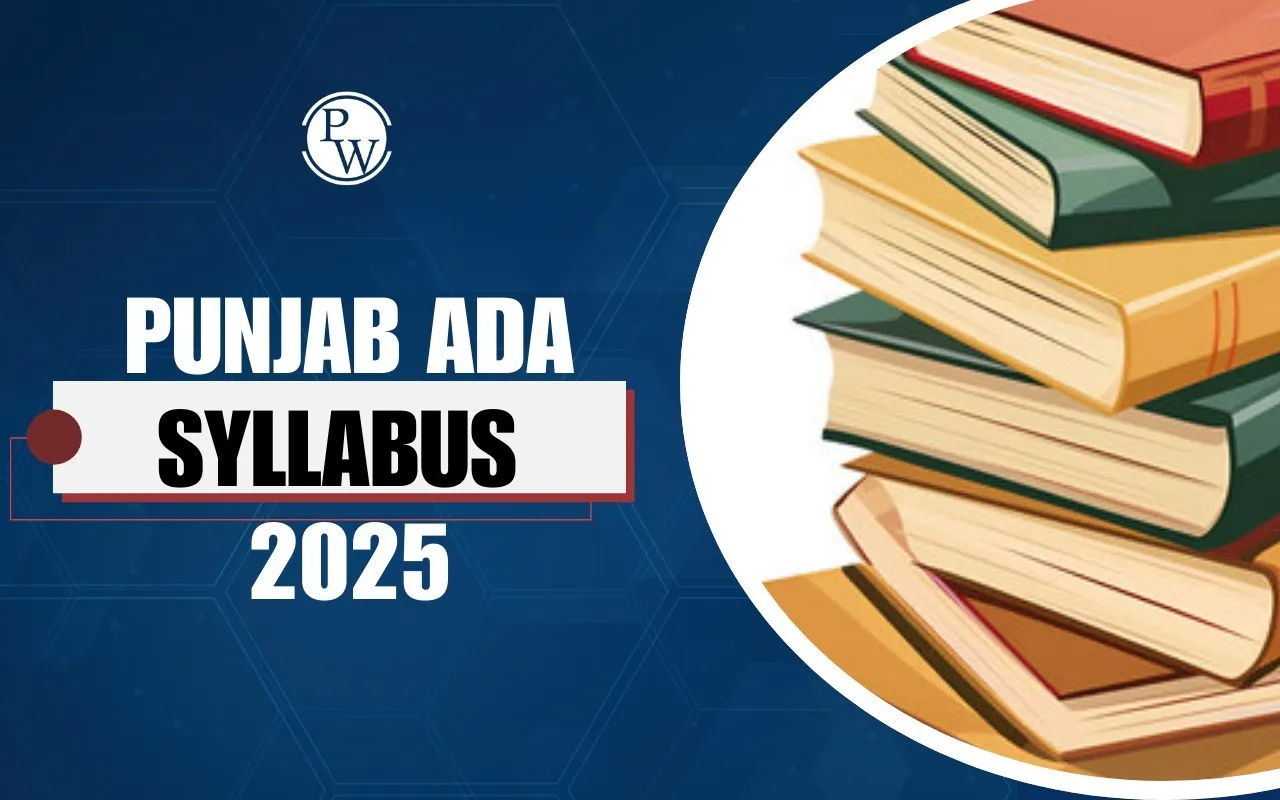
Punjab ADA Syllabus 2025 has been structured to test the legal proficiency, general awareness, and personality aptitude of aspirants aiming to become Assistant District Attorney in the Department of Home Affairs and Justice, Govt. of Punjab. Conducted by the Punjab Public Service Commission (PPSC), the recruitment process includes a written exam and an interview.
Read on to get a detailed explanation of the Punjab ADA Exam Syllabus 2025, ensuring clarity for all aspirants.
Punjab ADA Syllabus 2025 Overview
The Punjab Public Service Commission (PPSC) will soon announce the Punjab ADA Syllabus 2025 and provide information about the Punjab ADA Recruitment 2025. To prepare well, it is important to know how the exam is organised, what subjects will be covered, and how much each part counts. Here is a simple overview of the syllabus and the selection process:
|
Punjab ADA Syllabus 2025 Overvie |
|
|
Exam Conducting Authority |
Punjab Public Service Commission (PPSC) |
|
Post Name |
Assistant District Attorney (ADA) |
|
Total Vacancies |
To be Announced |
|
Category |
Syllabus and Exam Pattern |
|
Selection Process |
1. Written Exam 2. Interview |
|
Official Website |
ppsc.gov.in |
Punjab ADA Syllabus 2025 in Detail
In the section below, we have provided a detailed Punjab ADA syllabus 2025 for the written exam, divided into two parts - Part A covering Indian legal subjects and Part B covering General Knowledge and Logical Reasoning.
PART A: Law Subjects
As per the Punjab ADA Syllabus, Part A carries 100 questions carrying 4 marks each, accounting for a total of 400 marks.
UNIT 1: Code of Criminal Procedure
-
Jurisdiction, Constitution and Powers of Criminal Courts
-
Public Prosecutor, Superior Police Officers and Aid to Magistrates and Police
-
Arrest of Persons and Rights of Arrested Persons
-
FIR and Commencement of Investigation
-
Recording of Confession
-
Remand of Accused
-
Bail due to Non-completion and Completion of Investigation
-
Place of Inquiries and Trials
-
Complaints to Magistrates and Commencement of Proceedings
-
Charge: Contents, Effects of Error/Omission, Alteration, Joinder of Charges, Exceptions
-
Trial Before the Court of Session
-
Trial Before Magistrate (Warrant Case, Summons Case, Summary Trial)
-
Bail Types: Bail, Anticipatory Bail, Cancellation, Bail Bonds
-
Inherent Powers of the High Court
UNIT 2: Indian Penal Code
-
Introduction to Criminal Substantive Law
-
Definitions: General Explanations
-
Group Liability and Joint Liability
-
Punishments
-
Abetment
-
Criminal Conspiracy and Offences Against the State
-
Offences Relating to Public Servants
-
Offences Relating to Contempt of Lawful Authority of Public Servants
-
Offences Affecting Public Health, Safety, and Morals
-
Culpable Homicide and Murder
-
Causing Death by Negligence
-
Dowry Death
-
Attempt to Murder and Attempt to Commit Suicide
-
Hurt, Grievous Hurt, Acid Attack
-
Criminal Force, Assault, Outraging Modesty of Women, Voyeurism, Stalking
-
Rape: Aggravated Forms and Punishments
-
Criminal Misappropriation of Property and Criminal Breach of Trust
-
Receiving Stolen Property and Cheating
UNIT 3: Indian Evidence Act
-
Definition and Statutory Interpretation: may presume, shall presume, conclusive proof
-
Relevance of Facts and Facts Connected with Facts in the Issue
-
Admission and Confession
-
Dying Declaration and Statements by Persons Who Cannot Be Witnesses
-
Relevance of Judgments
-
Expert Testimony
-
Oral and Documentary Evidence
-
Presumptions
-
Exclusion of Oral Evidence by Documentary Evidence
-
Burden of Proof and Onus of Proof
-
Estoppel
-
Competence of Witnesses
-
Privileged Communications
-
Examination of Witnesses
-
Effect of Improper Admission and Rejection of Evidence
UNIT 4: Code of Civil Procedure
-
Decree, Order, Judgment
-
Jurisdiction, Lack and Irregular Exercise
-
Place of Suing
-
Doctrine of Res Sub-Judice and Res Judicata
-
Parties to Suit and Frame of Suit: Joinder, Misjoinder, Non-joinder
-
Pleadings and Amendment of Pleadings (Plaint, Written Statement)
-
Summoning of Parties, Issues, and Service of Summons
-
Appearance and Consequences of Non-Appearance
-
Hearing of Suit: Framing of Issues, Disposal at First Hearing and Trial
-
Arrest Before Judgment
-
Attachment Before Judgment
-
Appointment of Receiver
-
Temporary Injunction and Interlocutory Orders
-
Commissions: Appointment, Powers, Functions, Foreign Courts
-
Suits by or against Government or Public Officers
-
Suits by Indigent Persons
-
Suits Relating to Public Nuisance and Public Charities
-
Appeals: First Appeal, Second Appeal, Supreme Court Appeal, Reference, Review, Revision
-
General Principles and Procedure for Execution of Decrees
-
Inherent Powers of Civil Courts
-
Pleadings and Trial of Commercial Suits in Commercial Courts
UNIT 5: Constitutional Law
-
Preamble and Preambular Objectives
-
Nature of the Indian Constitution
-
Federal Features of the Indian Constitution
-
Formation and Reorganisation of States
-
Citizenship
-
Fundamental Rights
-
Fundamental Duties
-
Directive Principles of State Policy
-
Union and State Legislatures
-
Money Bills, Finance Bills, Other Bills
-
Union and State Executive
-
Judiciary: Supreme Court, High Courts, Subordinate Judiciary
-
Ordinance-Making Power
-
Union-State Legislative, Administrative, and Financial Relations
-
Freedom of Trade, Commerce, and Intercourse
-
Official Language
-
Amendment of the Constitution
-
Special Provisions for Union Territories' Legislature and Executive
-
Elections
-
Services under the Union and the States
PART B: General Knowledge, Logical Reasoning, and Mental Ability
(a) General Knowledge and Current Affairs
-
Current General Knowledge
-
Economic Issues
-
Polity Issues
-
Environment Issues
-
Science and Technology
-
Other Current Issues
-
History of India with Special Reference to Indian Freedom Struggle
-
History of Punjab (14th Century Onwards)
(b) Logical Reasoning and Mental Ability
-
Logical Reasoning, Analytical and Mental Ability
-
Basic Numerical Skills: Numbers, Magnitudes, Percentage, Numerical Relations
-
Data Analysis: Graphic Presentations, Charts, Tables, Spreadsheets
Punjab ADA Exam Pattern 2025
The Punjab ADA Exam Pattern 2025 is as follows:
-
The Punjab Assistant District Attorney Exam is a pen-and-paper test with multiple-choice questions answered on an OMR sheet using a ballpoint pen.
-
The question paper is set in English only.
-
Each question carries 4 marks, with a negative marking of 1 mark for each wrong answer.
-
The total number of questions is 120, divided into:
-
Subject-Based Questions (Part A): 100 questions, 400 marks.
-
Questions from Logical Reasoning, Mental Ability, and General Knowledge: 20 questions, 40 marks.
-
Total marks for the exam are 480, and the duration is 2 hours.
Punjab ADA Syllabus 2025 Preparation Tips
To clear the exam, candidates need a focused and disciplined study plan. Here are some simple tips to prepare for the Punjab ADA Exam 2025:
-
Know the Punjab ADA Exam Pattern: Understand the exam structure so you can plan your study time well.
-
Focus on Important Legal Topics: Concentrate on topics like Criminal Law (IPC, CrPC), Evidence Act, Constitutional Law, and Punjab-specific laws.
-
Keep Up with Current Affairs: Spend 15–20 minutes daily reading banking and economic news from trusted sources like RBI bulletins and PPSC updates.
-
Practice Mock Tests and Past Papers: Regularly take practice tests to check your progress and improve speed and accuracy.
-
Work on English Skills: Read editorials and solve English questions from past exams. Doing vocabulary exercises helps a lot.
-
Use Good Study Materials: Study from reliable books and official PDFs. Download the updated Punjab ADA Syllabus PDF from the official PPSC website.
-
Manage Your Time Well: Split your study time between different subjects, giving extra attention to weaker areas without neglecting others.
Punjab ADA Syllabus 2025 Preparation Books
Using these Punja ADA Preparation Books provided by Physics Wallah, along with regular practice and revised notes, makes the preparation balanced and comprehensive.
Explore the Judiciary Coaching 2025 to access essential resources for Judiciary exam preparation, including detailed insights and strategies. Dive into the Judiciary 2025 for structured courses and focused study plans designed to help aspirants excel in their exams.
